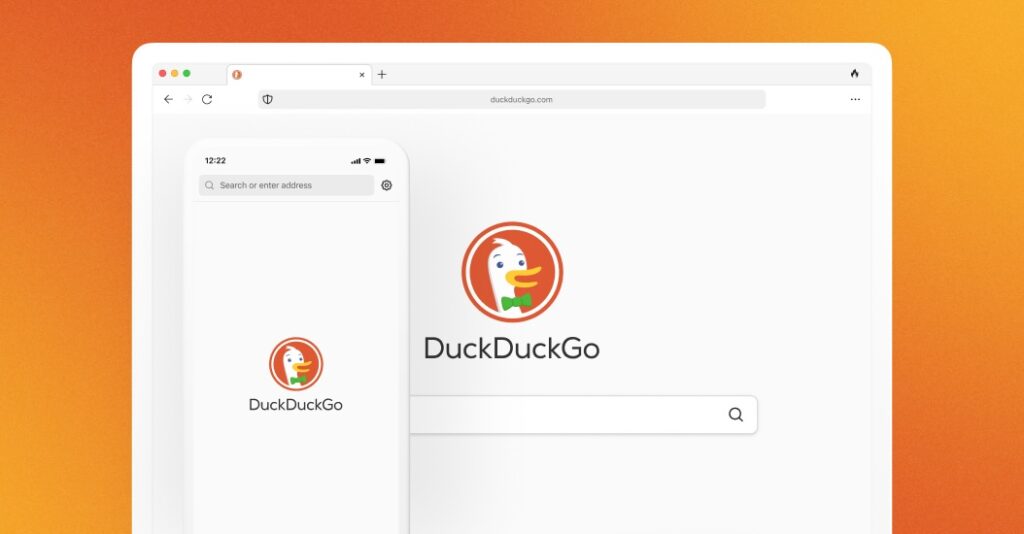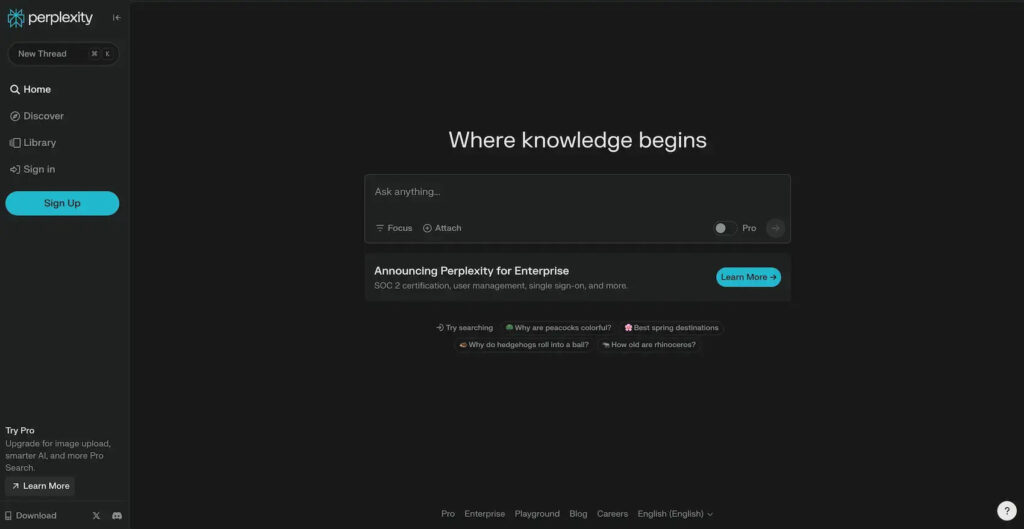Best Search Engines
Search engines are the fastest and most effective way to access information. But the search engines that help us navigate this vast digital world play a key role in finding the right information. From Google to DuckDuckGo, Perplexity to Yandex, there are many options, but which one is best for you? Are you looking for speed, privacy or an innovative AI-powered experience? In this comprehensive guide, we’ll take an in-depth look at the world of search engines, compare popular platforms and offer practical advice to help you choose. We’ll also look at how AI is transforming search engines and how it will shape the future. This article provides a roadmap to help you choose the best search engine for your needs.

What are Search Engines and Why Are They Important?
Search engines are software that crawl and index billions of web pages on the internet and provide the most relevant results to users’ queries. Whether you are looking for a product, finding an answer to a question or discovering a new hobby, search engines are our guides in the digital world. But not all search engines work in the same way. Some offer speed and comprehensiveness, while others focus on privacy or customized experiences. Choosing the right search engine can save time and make your online experience more efficient.
What to Consider When Choosing a Search Engine?
Choosing a search engine depends on your needs and priorities. Here are the main criteria you should consider when choosing:
- Speed and Accuracy: How fast and accurate the search results are.
- Privacy: Whether and how your personal data is collected and used.
- User Experience: Ease of use of the interface and presentation of results.
- Artificial Intelligence Integration: The ability to provide more intelligent and contextualized answers to your questions.
- Additional Features: Extras such as image search, map integration or regional content.
- Ecosystem Integration: For example, do you want a search engine that is compatible with Microsoft products?
This guide will help you choose the best search engine for you, taking these criteria into account.

Comparison of the Most Popular Search Engines
The table below compares the most popular search engines by key features as of 2025. This table will help you quickly understand which platform suits your needs.
| Search Engine | Main Feature | Privacy Level | User Experience | Artificial Intelligence Integration | Who is it Suitable for? |
|---|---|---|---|---|---|
| Fast, comprehensive results, broad ecosystem | Medium (Personal data is collected) | User-friendly, personalized | Powerful (Google Bard, AI summaries) | General users, those looking for ecosystem integration | |
| Bing | Visual search, Microsoft integration | Medium (Data collection available) | Clean interface, award-winning system | Medium (supported with Copilot) | Microsoft users, visual searchers |
| DuckDuckGo | Privacy-oriented, no tracking | High | Simple, ad-free | Limited (developing AI-based features) | Privacy-first users |
| Yandex | Regional content, map integration | Low | Useful, especially for Russia | Medium (AI-supported recommendations) | Seekers of regional content |
| Perplexity | AI-driven, conversational responses | High | Modern, knowledge-driven | Strong (Direct AI responses) | Researchers, innovative experience seekers |
Google Market Leader
Features: Google dominates more than 80% of the global search market. It stands out with its fast results, large database and integrated services such as Gmail and Maps. Google Bard and AI summaries provide intelligent answers to complex queries.
Pros: Comprehensive results, user-friendly interface, strong AI integration.
Cons: Collection of personal data, privacy concerns.
WhoIt’s For: Those who want speed, accuracy and integration with the Google ecosystem.
Bing: Microsoft’s Powerful Alternative
Features: Bing is powerful in visual search and integrated with Microsoft’s Edge browser and Office tools. An AI assistant called Copilot provides natural language answers. The award-winning search system encourages users to accumulate points.
Pros: Visual search, Microsoft integration, clean interface.
Cons: Doesn’t have as large a database as Google, low market share.
Suitable for: Those who use Microsoft products, visual searchers.
DuckDuckGo Privacy Champion
Features: DuckDuckGo does not collect or track user data. It stands out with its simple, ad-free interface. In recent years, it has started to add AI-based features.
Pros: High privacy, ad-free experience, simple to use.
Cons: Weak in delivering personalized results.
Whois it for? Those who value privacy, looking for a minimal experience.
Yandex: Regional Expert
Features: Popular in Russia and neighboring countries, Yandex is strong in regional content and map integration. It offers AI-powered recommendations.
Pros: Regional content, map integration, user-friendly.
Cons: Privacy policies controversial, limited globally.
Whois it for? Those looking for Russian or regional content.
Perplexity: Artificial Intelligence’s New Star
Features: Perplexity offers chat-style answers unlike traditional search engines. Its AI-driven approach is ideal for researchers.
Pros: Smart answers, modern interface, high privacy.
Cons: Not yet mass appeal, limited database.
Suitable for: Those who do in-depth research, those looking for an innovative experience.
The Transformative Role of Artificial Intelligence in Search Engines
Artificial intelligence is revolutionizing the world of search engines. Traditional keyword searches are giving way to smarter, contextual and user-centered experiences. Here’s how AI is impacting search engines:
Today for Search Engines: Smarter and Personalized Searches with AI
- Natural Language Processing (NLP): Systems like Google Bard, Bing Copilot and Perplexity understand users’ complex questions and generate natural answers. For example, “What can I do in Istanbul this weekend?” can be answered with location, weather and event suggestions.
- Image and Voice Search: Google Lens recognizes images and provides relevant information. Voice assistants understand commands better thanks to AI.
- Personalization: AI customizes results based on your previous searches and behavior. However, this also raises privacy concerns.
Example: Google’s “People also ask” feature uses artificial intelligence to automatically display frequently asked questions based on users’ queries.
The Future for Search Engines: The Evolution of Search Engines with AI
- Conversation Based Search: Platforms like Perplexity show that the future of search engines will resemble chat bots. Users will be able to ask questions as if they were talking to an assistant.
- Contextual Understanding: AI will analyze user intentions better and deliver more accurate results. For example, it can take into account your budget, location and preferences when searching for “cheap vacation”.
- Privacy and Ethics: AI’s data collection methods could increase the popularity of privacy-focused search engines like DuckDuckGo. In the future, users will pay more attention to how their data is used.
- Learning Algorithms: AI will continuously improve results by learning from user feedback. For example, it can optimize rankings by analyzing which results get more clicks.

A Practical Guide to Choosing a Search Engine
You can follow the steps below to decide which search engine to choose:
- Identify your needs: Are speed, privacy, AI features or regional content a priority? For example, DuckDuckGo for privacy and Perplexity for research.
- Try and Compare: Use different search engines for a week. For example, search for the same query on Google, Bing and Perplexity and compare the results.
- Review Privacy Policies: Read their terms of data collection and use. DuckDuckGo and Perplexity are more transparent in terms of data privacy.
- Consider Your Ecosystem: Google integrates with Gmail and Drive, while Bing is compatible with Microsoft 365. Consider this if integration with other tools you use is important.
- Test the AI Experience: Try Perplexity or Google’s AI summaries to assess which platform offers smarter answers.
Example Scenarios
- Student/Researcher: Perplexity is ideal for in-depth research. It offers answers backed by direct sources.
- Privacy Savvy: DuckDuckGo offers a secure experience without tracking.
- Microsoft User: Seamless integration with Bing, Windows and Office.
- General User: Google is the most popular choice for speed, accuracy and a large ecosystem.
Tips for Search Engines in terms of SEO
SEO is critical for your website to rank high in search engines. Here are SEO strategies for search engines:
- Keyword Strategy: Use focus keywords such as “search engines” in a natural way within the title, subtitle and text.
- Quality and Up-to-date Content: Produce user-oriented, informative content. For example, comparative articles like this guide are valuable for users.
- Mobile-Friendly: Search engines prioritize mobile-friendly sites. Use responsive design.
- Speed Optimization: Fast loading sites both improve the user experience and provide an advantage in rankings.
- Backlinks and Authority: Links from trusted sites make search engines trust your site.
- Artificial Intelligence Optimization: Google’s AI algorithms evaluate the contextual meaning of content. Produce content that is clear, structured and focused on user intent.
To Summarize;
Choosing the right search engine can transform your internet experience. If you are looking for speed, comprehensive results and a large ecosystem, Google is still the unrivaled leader. If privacy is a priority, DuckDuckGo or Perplexity stand out for their data security and anti-tracking policies. Bing offers a strong alternative for Microsoft users and visual search enthusiasts, while Yandex is ideal for those looking for regional content. Perplexity is a harbinger of the future for researchers and those who want an innovative experience with its AI-driven, conversational searches. Artificial intelligence is transforming search engines from mere tools into intelligent assistants. The future holds more contextual, personalized and ethical search experiences. So identify your needs, experiment with different platforms and make the most of the opportunities that search engines offer, both as a user and as a content creator.


